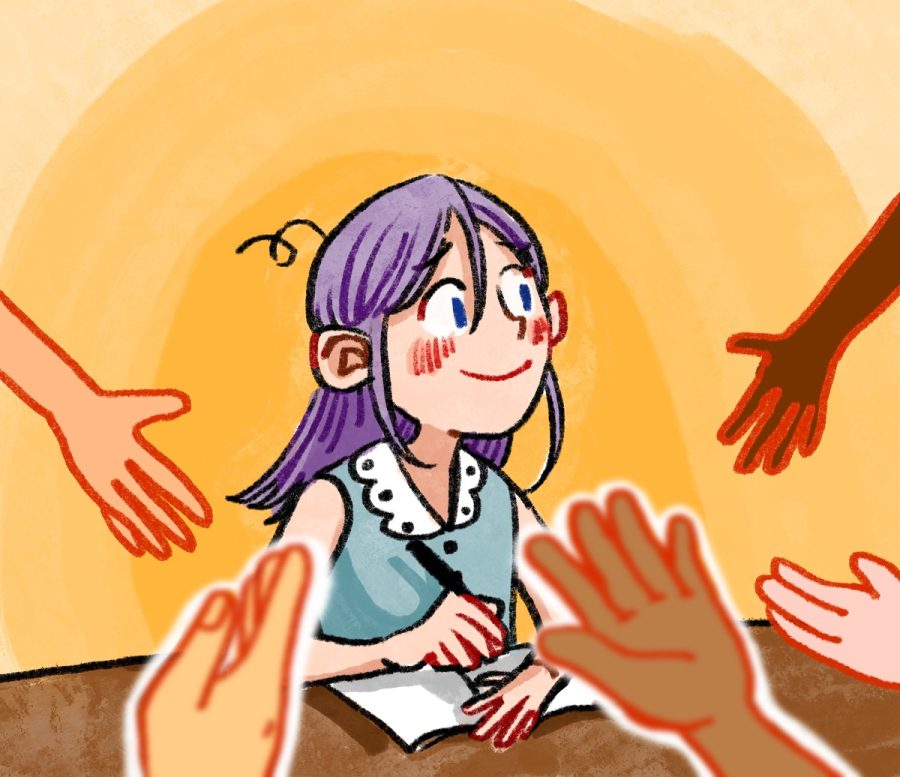UTurn offers support for COLA students through peer mentoring, one-on-one coaching
October 20, 2022
For students who feel overwhelmed and unsupported, an email from Ben Burnett extending an invitation to UTurn, can be the life raft to keep their academic career afloat.
Founded by senior program coordinator Burnett as a pilot program in 2009, UTurn acts as a support program for College of Liberal Arts students on academic probation with a GPA below 2.0. UTurn’s support system aims to focus on students’ individual needs and peer support through resources such as lectures and skills training workshops created by Burnett and UTurn mentors.
Burnett said he drew on his personal experiences with academia to create UTurn. As a former college student, he also struggled with taking a longer path to his degree, so he empathizes with the students who use the program.
“When I was an undergraduate and struggling in my teens and 20s, I wasn’t willing to go to adults and ask for help from someone who worked at the University,” Burnett said. “I would talk to my friends, somebody close to my age, so I wanted there to be an opportunity for students who were like me to talk to peers who can understand them if they’re not comfortable coming to me.”
That dream came to complete fruition in 2013, when, after working with countless academic advisors to reach out to students on academic probation, UTurn became an official UT program. Now UTurn fosters close to 100 members, all of whom Burnett reached out to via email.
Once students join, Burnett said the first step for him and his mentors at UTurn starts with breaking down the apprehension most students feel when it comes to getting support.
“No one who is admitted to UT expects to struggle,” Burnett said. “Students receive (the invitation) to join UTurn and think, ‘Why do I need this?’’ … All students can do it by themselves, (but) having mentors and resources can make that process easier.”
On average 73% of students who participate in UTurn avoid academic dismissal, Burnett’s invitation letter said. Events such as writing workshops and test-taking skills labs help students strengthen their academic abilities, according to the program’s website. UTurn also aims to create a fun atmosphere with future events focused on community building.
Joseph Gordon, a student in the program, said the UTurn study space in the Robert L. Patton building becomes a second home to students who need a quiet and supportive environment to do school work or simply just need a getaway.
“As a non-traditional student and also working full time, it’s really hard for me to find communities that are accepting of people,” said Gordon, a 26-year-old economics and philosophy senior. “I can go into UTurn, plop down on the couch and there’s always somebody there to chat with.”
Phoebe Kumi, a UTurn mentor, says UTurn provides an accessible and viable environment for students struggling academically because of mentors in the program who care and desire to help without judgment.
“I’ve created good relationships with my mentees,” said Kumi, a human dimensions of organizations senior. “It’s fun to see that growth and help them with their academic struggles, personal struggles and also build them up on a personal level.”
Kumi said she takes inspiration from UTurn’s mission to combat feelings of impostor syndrome common among UT students, and sees how many students the program impacts regularly.
“When (Burnett) is having meetings with different students, over and over, I hear him say something that has stuck with me: ‘Everyone is intelligent here, and everyone belongs here,’” Kumi said. “His words of encouragement (have) helped many students.”












